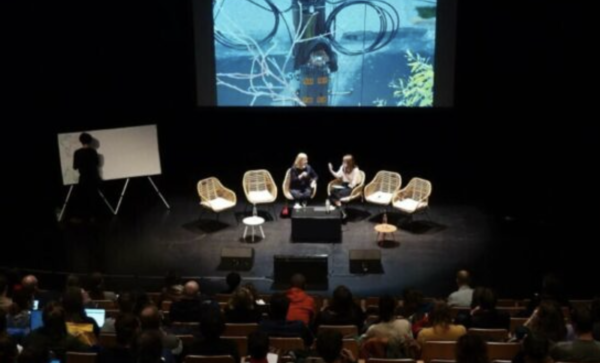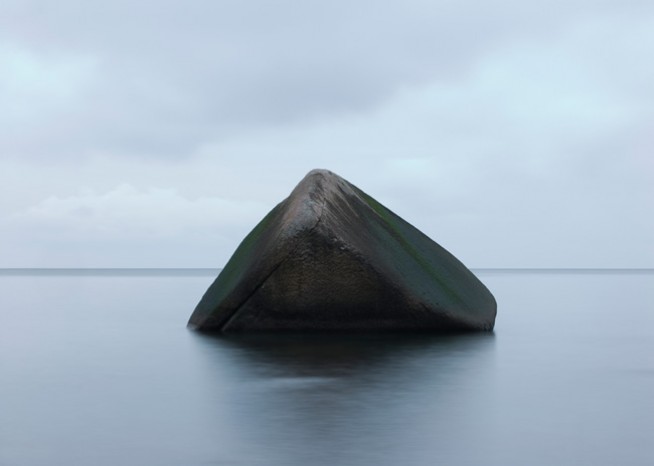
Rencontres Nationales Arviva #3

Crédit image : Image: Wandering Rock, 2008. Per Bak Jensen. Copyright: Per Bak Jensen, Galleri Bo Bjerggaard.
What is water?
From salt water to holy water, there is a long history of art referencing water in its many dimensions, locations and states. Imagery may explore water as substance, make metaphoric allusion, or engage debates relating to the geographies and socio-politics of water. Artists may have deep personal relationships with particular waters, or more documentary concerns with water needs and uses.
Water means life. In an era of climate change, debates about water, its availability and significance range across a number of academic fields. This conference will focus on water in its many states and circumstances, wherever it flows, floods, freezes, stagnates or evaporates. It will bring together artists/academics in lens-based and related fields of enquiry internationally, offering inter-disciplinary opportunities to share research, whether practice-led, art historical, geographic, theoretical or curatorial.
Themes and questions will include, but are not restricted to: –
• Practitioners responding to and representing material aspects of water as a substance capable of many states, from the frozen to steam and vapour?
• Water as related to ecology, process, boundaries, the liminal and the transitional, physical geography and environmental change?
• Cultural geographies and the politics of water and place?
• Psychological and phenomenological perceptions and expressivity.
• Narratives, histories, memories and journeys.
Keynote speakers: Per Bak Jensen and Deborah Bright
Per Bak Jensen: The Being of Places
Landscape Photographer Per Bak Jensen (born 1949) is often (rightfully) said to be a pioneer in his field. In his persistent search for a photographic expression he has created a number of photographic series which have placed him as one of the most important art photographers in Scandinavia. For Bak Jensen, who never manipulates his images, it is essential to catch a certain form of timelessness which by his own words capture “the being of places”. Per Bak Jensen was until recently an associate professor at The Royal Danish Academy of Fine Arts in Copenhagen and through his unique photographic working methods he has inspired many young Scandinavian artists. His work is represented in many public collections worldwide, such as MOMA, New York, Metropolitan Museum of Modern Art, New York and Bibliothéque Nationale, Paris.
Deborah Bright
Deborah Bright was born in Washington, DC in 1950 and received her MFA from the University of Chicago in 1975. Her works have been shown internationally at the Victoria and Albert Museum; the Museet for Fotokunst, Copenhagen; Nederlands Foto Instituut, Rotterdam; Museum Folkwang, Essen; Canadian Museum of Contemporary Photography, Ottawa; Cambridge Darkroom (UK); Vancouver Art Gallery. In the United States, her works can be found in the permanent collections of the Whitney Museum of American Art; National Museum of American Art, Washington, DC; Addison Gallery of American Art, Andover, MA; Fogg Art Museum at Harvard University; Rose Art Museum at Brandeis University; Radcliffe Institute for Advanced Study, Cambridge, MA; Trustman Art Gallery, Simmons College, Boston, MA; University Art Museum at SUNY Binghamton; California Museum of Photography, Riverside; Illinois State Museum in Springfield, IL; Museum of Art, Rhode Island School of Design. She has received grants and fellowships from the Mary Ingraham Bunting Institute, Radcliffe College; Art Matters; National Endowments for the Arts and the Humanities; Lightwork; New England Foundation for the Arts; Massachusetts Cultural Council; Somerville Arts Council; Illinois Arts Council; Mellon Foundation; David and Reva Logan Foundation.
Bright’s groundbreaking collection of images and writings on photography and sexuality, The Passionate Camera: photography and bodies of desire (Routledge, 1998) was a finalist for the 1999 Lambda Book Award in Visual Arts. In addition, her essays on photography and cultural issues have appeared in Art Journal, Afterimage, exposure, Views, Michigan Quarterly. Since 1989, she has been a professor in the Photography and Art History Departments at the Rhode Island School of Design. Her photographic works are represented by the Bernard Toale Gallery, Boston, MA.
INFORMATIONS:
Robin Hawes
Research Assistant
Academy for Innovation & Research
University College Falmouth
Tremough Campus
Penryn
Cornwall
TR10 9EZ
robin.hawes@falmouth.ac.uk